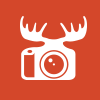Home
Tips & Tricks
Sony Tips
Sony a6400
Sony a6300
Sony a6000
Canon Tips
Canon M50 Mark II
Canon M50
Canon 6D Mark II
Canon 6D
Canon 7D Mark II
Canon 7D
Canon 90D
Canon 80D
Canon 77D
Canon 70D
Canon 60D
Canon T7 · 2000D
Canon T7i · 800D
Canon T6s · 760D
Canon T6i · 750D
Canon T6 · 1300D
Canon T5i · 700D
Canon T5 · 1200D
Canon T4i · 650D
Canon T3i · 600D
Canon T3 · 1100D
Canon T2i · 550D
Canon SL2 · 200D
Canon SL1 · 100D
Nikon Tips
Nikon D750
Nikon D500
Nikon D7500
Nikon D7200
Nikon D7100
Nikon D5600
Nikon D5500
Nikon D5300
Nikon D5200
Nikon D5100
Nikon D3500
Nikon D3400
Nikon D3300
Nikon D3200
Nikon D3100
Cheat Sheets
Sony Cheat Sheets
Sony a6300
Sony a6000
Canon Cheat Sheets
Canon M50 Mark II
Canon M50
Canon 6D Mark II
Canon 6D
Canon 7D Mark II
Canon 7D
Canon 90D
Canon 80D
Canon 77D
Canon 70D
Canon 60D
Canon T7 · 2000D
Canon T7i · 800D
Canon T6s · 760D
Canon T6i · 750D
Canon T5i · 700D
Canon T6 · 1300D
Canon T5 · 1200D
Canon T4i · 650D
Canon T3i · 600D
Canon T3 · 1100D
Canon T2i · 550D
Canon SL2 · 200D
Canon SL1 · 100D
Nikon Cheat Sheets
Nikon D750
Nikon D500
Nikon D7500
Nikon D7200
Nikon D7100
Nikon D5600
Nikon D5500
Nikon D5300
Nikon D5200
Nikon D5100
Nikon D3500
Nikon D3400
Nikon D3300
Nikon D3200
Nikon D3100

Comments
If you’ve not done so already, the best thing you can do is to get out of Auto mode. To do so, you must learn the basics of photography which is the exposure triangle. In order to fully utilize your gear, you must be able to answer these questions:
1) What is aperture?
2) What are the pro and cons of opening up and stopping down the aperture?
3) What is shutter speed?
4) What are the pros and cons of slow and fast shutter speeds?
5) What is ISO?
6) What are the pros and cons of high and low ISO’s?
Shoot in M mode. You can still utilize your camera’s light metering to get proper exposure if you turn on Auto ISO. That way, you can change your aperture and shutter speed combination to whatever you want and the camera will bump the ISO up or down to maintain proper exposure. Turn off Auto ISO when you feel comfortable metering the scene yourself. Doing so on the D7000 is super easy; just hold the ISO button and turn the front dial one click.
Play with off-camera flash by getting the SB-700. You’ll probably never want to fire a flash attached to your camera ever again.
Thank you for this trick. I am trying it right now and learning new things. I decided to hold off on the decision of purchasing a SB-700 as it is little bit out of my reach now.
Thank you.
If you are in America, a belated July 4th greeting.
Getting a DSLR is the best way to learn about photography, so don't worry; you've made a great decision.
I find that there's not enough simple explanations on the Internet of how aperture, shutter speed, and ISO affect exposure. If you really go and search for it, you'll find some excellent articles about them, but I think I'm going make a couple of simple Tumblr posts with clear examples to help out fellow beginner photographers. I'll share the link here when I'm done.
Hopefully, this could be of help to you
http://forums.cameratips.com/discussion/2177/simple-explanations-with-examples-of-basic-photography-knowledge
Other advantages of the D7000 and D7100 such as better autofocusing, more meter and focus points, and such, are great to have, but the technique of using them is not really different.